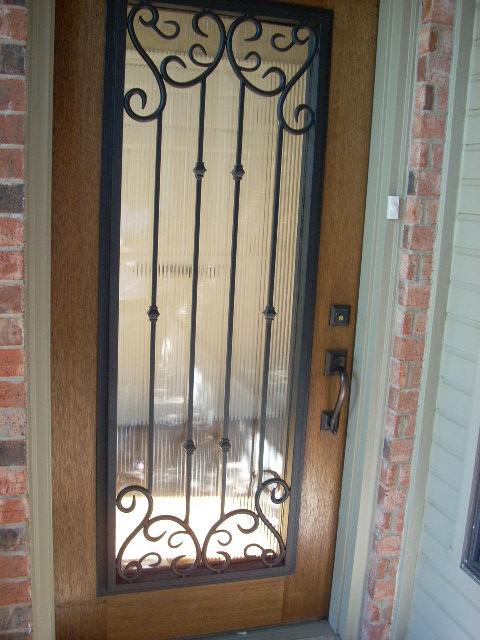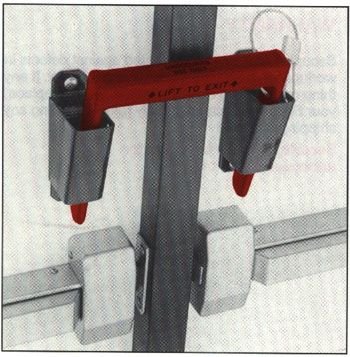
There are several different types of smart lock you can choose from. There are Bluetooth-only, WiFi-capable, and Keypad models. It's essential to select the right one for you home and lifestyle. These options can help you keep your home safe and secure.
WiFi-capable smart locks
WiFi-capable locks are a great option if you are looking to add a smart lock to your house. These locks come with a simple app that integrates Wi-Fi and allow you to unlock your doors by using your phone, voice, finger or fingerprint. They can also be connected to other connected home devices like an indoor security camera and video doorbell.
Some smart locks can be paired with mobile apps, and some even allow web access. The apps on these smart locks should give you the option to add permanent users or set access schedules. Some will record activity logs, so you can keep track of who has access to your home and when.
Smart locks that are keyless
You have the option to choose from a variety of Keyless Door Locks. These include Bluetooth and Wi Fi enabled locks. You can have some locks delivered to your house, others can be picked-up at a local store. August's WiFi Smart Lock Matte Black Single Cylinder Deadbolt costs $549.99 and comes standard with a 1-year warranty.

FAQ
Which Home Security Systems Are Unhackable?
This depends on what definition you use of hacking. Hacking is the unauthorised access to computer networks or systems. Most home security systems cannot be hacked because they do not contain software that allows someone else to control them remotely. They don't permit anyone to enter your home without your permission.
If they are connected to an internet connection, however, certain home security systems may be compromised. These systems require a password in order to function. If someone knows the password, he can hack them.
How much should alarm monitoring cost?
The cost of alarm monitoring varies depending on the frequency you need it monitored, the equipment you require, and whether an all-inclusive or monthly package is chosen.
Who is the best company for home security monitoring?
The best home security monitoring company is ADT. They offer 24/7 monitoring service at affordable price. They have a customer service team that is available 24 hours a day and will respond within minutes to all issues.
ADT offers an Android and iOS app. So you can check your home anytime, anywhere.
Do I really want a home alarm?
If you own a home, you definitely need a home security system. Anytime, a burglar can break into your home without warning. They'll steal everything, even valuable electronics. And if you leave your doors unlocked, they could just walk away with everything.
Your home is protected by a home security system that alerts you to any potential dangers. This includes monitoring motion, sending you alerts to mobile devices, recording activity, as well as allowing access to recorded footage.
A simple DIY camera can be used if you don't want to spend money on a security system. These devices can be used to monitor who is at your front door as well as send you notifications when someone enters or leaves. However, they will not stop intruders breaking into your home.
What is the difference in surveillance and security cameras?
Surveillance cameras serve monitoring purposes, security cameras are used as protection.
Each camera has its advantages and disadvantages. The main difference between them is the type of images they capture. Surveillance cameras record video with slow motion so that you can view what's happening right now. Security cameras, on the other hand, only record still images and video, which can be viewed later.
Statistics
- Depending on your insurance, 24/7 professional monitoring may qualify you for as much as 15% off your premium. (safewise.com)
- Depending on your insurance, 24/7 professional monitoring may qualify you for as much as 15% off your premium. (safewise.com)
- Most home security companies will charge you around 75% of the remaining term of your contract if you cancel early—and some require 100%.Related questionsWhat type of contract length can I expect from security providers?Home security system cancellation (safewise.com)
- Cove sets you free without punishing penalties and fees, unlike other security solutions that charge 75% to 100% of your remaining contract. (safewise.com)
External Links
How To
How to Install an Home Security System
A home security alarm is a device that monitors the property and alerts you in case of any suspicious activity. It could be a motion sensor, doorbell camera, smoke detector, fire alarm, flood alert, carbon monoxide detector, burglar alarm, etc. A home security system is usually composed of one or several sensors (e.g. motion detectors), that send signals when there's movement or sound. The signals are then sent over to a control box where they are monitored and recorded. A control panel will alert your phone, tablet or computer if something is wrong. The control panel will notify you immediately so that you can take corrective action.
The first step to installing a home security system is choosing the right type of sensors for your home. There are two types of sensors available: active and passive. Passive sensors do not require batteries. They simply pick up sounds and vibrations around them. They can be doorbells or sirens as well as buzzers. Active sensors use electricity for data transmission. Cameras and motion sensors are two examples of active sensors.
There are many sensors brands today. Each brand has its own pros and disadvantages. Some sensors are waterproof, others are not. Some have built-in speakers that allow you to hear them outside. Others work only inside. Some have simple features, while others provide advanced features like night vision.
After you have decided on the best sensors for your property's needs, you will need to choose a manufacturer. This will ensure that your sensors are compatible. Your local hardware store should have plenty of options to choose from.
Once you have selected a brand of sensor, you need to decide the number you wish to buy. Depending on whether someone lives alone or with their family, most people buy one to two sensors. You might want to buy more sensors if you intend on adding them later.
Next, decide where you want the sensors to go. Do you want them close to doors or windows? Or would you rather have them hidden? Before you put them anywhere on your property make sure you get permission. Make sure that they won't cause interference with any other electrical outlets.
After you've determined the location of your sensors, you will need a way that they can be connected to your control panels. A power adapter or battery package may be required depending on your setup. Once you have everything set up, you'll be ready to monitor your property!